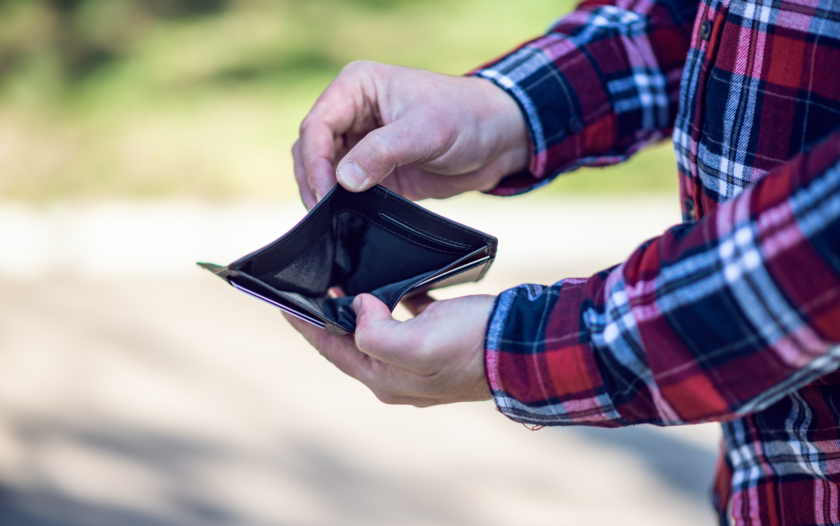How to Pay Off Debt With No Money
About Brooke
Brooke is a freelancer who focuses on the financial wellness and technology sectors. She has a passion for all things wellness and spends her days cooking up healthy recipes, running, and snuggling up with a good book and her fur babies.
Read full bio
At a Glance
When you’re barely scraping by each month, but you also have debt, your biggest stressor may be wondering how to pay off debt with no money. Whether due to a sudden job loss or simply an overload of debt payments, there may come a time where you won’t be able to meet creditor demands. And that means you need to find ways to pay off debt to salvage your credit score and financial future. Here are the steps you can take to begin.
Figure Out Where Your Money is Going
You may find yourself without money to pay your debt for one of two reasons:
- You’re not earning enough money to meet your necessary bills
- You’re spending more than you’re bringing home
Once you determine which of these camps you’re in, it will be easier to decide whether you need to increase your income or cut back on your spending. Each of these methods can help avoid damage to your credit score that can stem from late or missed credit card payments.
How to Pay Off Debt When You’re Broke
Here are four places to start as you think about how to get out of debt with no money.
Create a Spending Plan
Since you’ve already figured out where your money is going, now is the time to re-prioritize your spending to free up more money to pay off debt. While you may wonder how to pay off credit card debt with no money, it’s often just a matter of lowering spending in certain areas and shifting the excess toward debt.
The most important aspect of your spending plan is that it’s realistic. For example, if you currently spend $500 a month at restaurants, budgeting for $100 may only end up causing stress. Instead, create a target of $400 and allocate the extra $100 to debt. Then, next month, try allocating $50 or $100 more toward debt instead of restaurants. Small steps, not sweeping change, are vital to creating long-term habit transformation.
Increase Your Income
If you’re broke, you’ll need to find a way to earn more money to put toward debt. If you enjoy your current job and are performing well, consider asking for a raise. But if you’re unhappy at work or looking to make a career change, start looking around for a new job, preferably one that pays more so you can put additional income toward debt.
Changes in your primary employment might not always be possible. And that’s where taking on a part-time job, or side hustle can help. There are a number of side hustles you can do from home, like freelancing, taking surveys for money, and tutoring. If you’d rather hustle in person, consider driving for a food delivery service or walking dogs on Rover.
The most important thing about increasing your income is that you use the extra money for debt repayment and don’t blow it on non-essentials that could put you even further in debt.
Don’t Be Afraid to Contact Creditors
Facing creditors can be scary when you’re trying to pay off debt with no money. But scary as it may be, you will need to have a conversation and explain your situation. Creditors may be willing to lower or temporarily suspend payments on your credit card debt until your situation normalizes. Whatever you do, don’t ignore creditors, as that can create a more complex and stressful situation than necessary—this is not the way to deal with creditors when you have no money.
Look into Debt Relief Services
Credit counseling and debt relief services can help you pay off debt fast with no money. These professionals can work with you to change habits that created the debt in the first place. They’ll also assist with a payment plan and may even work with creditors to lower payments or suspend them temporarily.
Another form of debt relief can be found in debt consolidation. If you have multiple credit card balances, taking out a debt consolidation personal loan or doing a credit card balance transfer can end up saving you lots of money by lowering interest rates. It also means you’ll only need to manage one single monthly payment, which can help alleviate some of the stress from managing multiple debts.
The Bottom Line
Having no money to pay credit card debt can be a scary prospect. But the most important thing is to acknowledge the debt and face it head-on. Then, by using tactics like figuring out where you stand, creating a spending plan, contacting creditors, or even looking into debt relief services, you can get moving in the right direction and on your way to debt freedom.









